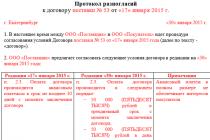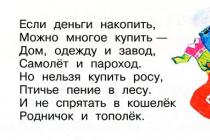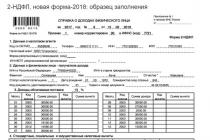In this chapter, we will find out who are the participants in compulsory health insurance, who the law classifies as insured persons, policyholders and insurers, what rights and obligations they have.
As subjects of compulsory health insurance Art. 9 of Law N 326-FZ calls:
- insured persons;
- policyholders;
- Federal fund.
To the number participants of compulsory health insurance relate:
- territorial funds;
- medical organizations.
Insured persons
The insured persons are:
- citizens of the Russian Federation;
- permanently or temporarily residing in Russian Federation foreign citizens and stateless persons;
- persons entitled to medical care in accordance with the Federal Law of February 19, 1993 N 4528-1 "On Refugees".
The listed persons are recognized as insured if:
- work on employment contract or a civil law contract, the subject of which is the performance of works, the provision of services, as well as under an author's order agreement or a license agreement;
- self-employed ( individual entrepreneurs notaries engaged in private practice, lawyers, arbitration managers);
- are members of peasant (farmer) households;
- are members of family (tribal) communities of indigenous peoples of the North, Siberia and Far East Russian Federation, living in the regions of the North, Siberia and the Far East of the Russian Federation, engaged in traditional industries.
Why, among the insured foreign specialists specified in Art. 10 of Law N 326-FZ, highly qualified foreign specialists and members of their families are excluded?
The fact is that the activities of these persons on the territory of the Russian Federation are regulated by a separate Federal Law of July 25, 2002 N 115-FZ "On the Legal Status of Foreign Citizens in the Russian Federation" and other regulatory acts.
Highly qualified foreign specialist is a foreign citizen who has work experience, skills or achievements in a specific activity.
Moreover, the conditions for attracting such a specialist to work in the Russian Federation involve the receipt of wages (remuneration):
- in the amount of at least 1 million rubles. at the rate of one year (365 calendar days) - for highly qualified specialists who are researchers or teachers, if they are invited to engage in research or pedagogical activity according to state-accredited educational programs educational institutions of higher education, state academies sciences or their regional offices, national research centers or state research centers, as well as for highly qualified specialists involved in labor activities by residents of industrial production, tourist and recreational, port special economic zones (with the exception of individual entrepreneurs), organizations operating in the field information technologies and received, in accordance with the procedure established by the Government of the Russian Federation, a document on state accreditation of an organization operating in the field of information technology (with the exception of organizations that have the status of a resident of a technical and innovative special economic zone);
- in the amount of not less than 700 thousand rubles. at the rate of one year (365 calendar days) - for foreign citizens involved in labor activity by residents of the technology-innovative special economic zone (with the exception of individual entrepreneurs);
- without taking into account the requirement for the amount of wages - for foreign citizens participating in the implementation of the Skolkovo project;
- in the amount of at least 2 million rubles. at the rate of one year (365 calendar days) - for other foreign citizens.
According to paragraph 5 of Art. 13.2 of the said Law, employers or customers of works (services) that are Russian commercial organizations or accredited in in due course on the territory of the Russian Federation by branches of foreign legal entities.
In order to issue a work permit to a highly qualified foreign specialist and issue an invitation to enter the Russian Federation for the purpose of carrying out labor activity (if necessary), the employer (customer) submits to the Federal Migration Service of Russia, among other documents, an application for attracting a specialist and an employment contract ( civil contract for the performance of work (provision of services)) with an involved specialist, the entry into force of which is due to the receipt by the specified person of a work permit.
In the application for attracting a highly qualified specialist, the employer or customer of works (services) reflects information about the competence and skill level of a foreign citizen, as well as documents confirming that this specialist has vocational education.
At the same time, according to paragraph 14 of Art. 13.2 of this Law, a highly qualified specialist and members of his family who arrived in the Russian Federation, who are foreign citizens, must already have: a medical insurance contract (policy) valid in the Russian Federation or the right on the basis of a relevant contract concluded by the employer or customer of works (services) with medical organization to receive primary health care and specialized medical care.
Ensuring the above guarantees that a highly qualified specialist and his family members will receive medical care during the term of an employment contract concluded with a specialist or a civil law contract for the performance of work (rendering of services) is a prerequisite.
Also excluded from the list of insured persons are foreign workers involved in labor activity in the Russian Federation in accordance with Art. 13.5 federal law"On the Legal Status of Foreign Citizens in the Russian Federation". These are foreign citizens sent to work in branches, representative offices and subsidiaries of foreign commercial organizations located in the territory of the Russian Federation, registered in the territories of the member states of the World Trade Organization.
In a relationship refugees the norms of the Federal Law "On Refugees" apply. It determined that a person recognized as a refugee and members of his family who arrived with him have the right to medical and medicinal assistance on an equal basis with citizens of the Russian Federation, unless otherwise provided by international treaties of the Russian Federation. Accordingly, compulsory medical insurance of foreign citizens and members of their families who arrived in the Russian Federation on the grounds provided for by the said Law is carried out on a common basis with citizens of the Russian Federation if they are established by the FMS of Russia legal status refugee and issuance of the relevant certificate. At the same time, the insurers for non-working foreign citizens recognized as refugees are the executive authorities, the local administration.
The law also recognizes non-working citizens as insured in the system of compulsory medical insurance, namely:
- children from birth until they reach the age of 18;
- non-working pensioners, regardless of the basis for assigning a pension;
- citizens studying full-time in professional educational organizations and educational institutions of higher education;
- one of the parents or guardian involved in caring for the child until the child reaches the age of three years;
- able-bodied citizens engaged in caring for disabled children, disabled people of group I, persons who have reached the age of 80 years.
The insured are unemployed citizens. Recall that the procedure and conditions for recognizing citizens as unemployed are established by Art. 3 of the Law of the Russian Federation of April 19, 1991 N 1032-1 "On employment in the Russian Federation". This article provides for the following four conditions for recognizing citizens as unemployed:
- the ability of a citizen to work;
- lack of work and earnings (income);
- registration in order to find a suitable job;
- job search and willingness to start it.
For persons recognized as unemployed, the law guarantees social support, including:
- free medical examination when sent by the employment service for passing vocational training or receiving additional professional education;
- payment of unemployment benefits, including during the period of temporary disability of the unemployed. The payment of unemployment benefits in this case is made on the basis of a certificate of incapacity for work issued by a medical institution.
The list of persons classified as insured is completed by other citizens not working under an employment contract and not indicated in the listed cases, with the exception of military personnel and persons equated to them in the organization of medical care.
Why are military personnel an exception?
Because the specifics of their official activities determine the unconditional solution of the tasks assigned to them in any conditions, including those associated with a risk to life.
Persons working under an employment contract work for themselves. And military personnel (persons equated to them) perform state functions, realizing the will of the state, and not their own. Therefore, the state has assumed obligations to provide social assistance specified category of citizens.
According to paragraph 1, 2 of Art. 2 of the Federal Law of 27.05.1998 N 76-FZ "On the status of military personnel" military personnel undergo military service under a contract or military service by conscription in accordance with Federal Law of 03.28.1998 N 53-FZ "On military duty and military service". Citizens acquire the status of military personnel with the beginning of military service and lose it with its end.
The right to work is exercised by military personnel through their military service. At the same time, military personnel are not entitled to engage in other paid activities, with the exception of pedagogical, scientific and other creative activities, if it does not interfere with the performance of military service duties (clauses 1, 7, article 10 of the said Law).
Military personnel and citizens called up for military training have the right to free receipt medical care, including the manufacture and repair of dentures (with the exception of dentures made of precious metals and other expensive materials) free provision medicines for medical use on prescriptions for medicines, free provision of medical products as prescribed by a doctor in the relevant medical, military medical units, units and organizations of federal executive bodies in which military service is provided for by federal law.
In the absence of military medical organizations at the place of military service or place of residence of military personnel or at the place of military training by citizens called up for military training and (or) in the absence of departments of the corresponding profile, specialists or special medical equipment, as well as in emergency or in urgent cases, military personnel and citizens called up for military training have the right to receive medical care in medical organizations state system health care and municipal health care system.
Expenses associated with the provision of medical care to military personnel and citizens called up for military training in medical organizations of the state health care system and the municipal health care system are reimbursed at the expense of federal budget provided for this purpose federal authorities executive power, in which the federal law provides for military service.
In Art. 25 of Law N 323-FZ enshrined the rights of military personnel to health care. As stated in part 3 of this article, military personnel and persons equated to them have the right to receive medical care in departmental medical organizations. If, however, there are no such organizations in the place where assistance is required, or if departmental medical organizations do not have departments of the appropriate profile, specialists or special medical equipment, then military personnel are granted the right to receive medical care at the expense of federal budget allocations. The procedure for the provision of medical care, sanatorium and resort provision and implementation individual payments certain categories of military personnel, law enforcement officers and members of their families, as well as certain categories of citizens dismissed from military service, was approved by Decree of the Government of the Russian Federation of December 31, 2004 N 911, and funding for these purposes is received by federal executive bodies in which military service or equivalent service is provided for by the Federal Law "On Military Duty and Military Service".
Citizens discharged from military service are subject to compulsory medical insurance and are entitled to medical care in medical organizations of the state or municipal health care systems (clause 5, article 16 of the Federal Law "On the Status of Military Personnel").
During the period of military service until retirement, the citizen was attached to the clinic and hospital of the FGKU of the Russian Ministry of Defense. After his retirement in 2008, he was served by this medical institution. After his dismissal from the Armed Forces of the Russian Federation in 2007, the citizen received a compulsory medical insurance policy and was attached to a territorial medical institution, and in 2014 he was attached to a city polyclinic.
The citizen had a special status - he was a combat veteran. According to paragraph 1 of Art. 16 of the Federal Law of 12.01.1995 N 5-FZ "On Veterans" to veterans of military operations from among the persons specified in paragraphs. 1 - 4 p. 1 art. 3 of this Law, measures of social support are provided. In particular, such a measure as maintaining services in polyclinics and other medical institutions to which these persons were attached during the period of work until retirement.
In January-February 2014, the veteran applied to the polyclinic and military department hospital for medical help. However, the officials of these institutions verbally denied him on several occasions. On the written application of the citizen, dated March 2014, for outpatient and inpatient treatment in the clinic and hospital of the FGKU of the Ministry of Defense of Russia, he received a written refusal. The refusal was justified by the fact that the veteran does not belong to the category of persons entitled to treatment in the military medical organizations of the Russian Ministry of Defense, to which the hospital belongs, since the duration of the citizen’s military service in calendar terms was less than 25 years. As a war veteran, he has the right to free use of polyclinics, which are financed from the budgets of the corresponding levels and from the funds of compulsory medical insurance. But since the veteran was attached to the city polyclinic under the compulsory medical insurance policy in 2014, the hospital began to refuse to provide him with medical services. The veteran did not apply to change the medical organization. Under such circumstances, the court refused to satisfy the citizen's claim, which consisted in declaring illegal the refusal of the hospital in outpatient treatment and obliging him to place the veteran on outpatient treatment.
See: Appellate ruling of Samara regional court dated 21.08.2014 N 33-7753/2014.
Main directions public policy in area compulsory insurance military personnel and persons equated to them, the procedure and conditions for its implementation are regulated by the Federal Law of March 28, 1998 N 52-FZ "On Compulsory State Insurance of Life and Health of Military Personnel, Citizens Called for Military Training, Individuals and Commanders of the Internal Affairs Bodies of the Russian Federation , the State Fire Service, bodies for the control of the circulation of narcotic drugs and psychotropic substances, employees of institutions and bodies of the penitentiary system.
This document states that the life and health of military personnel and persons equated to them in compulsory state insurance are subject to compulsory state insurance. It is provided from the day of the beginning of military service, military training to the day of completion. In the event of insured events (wounds, injuries, contusions or diseases), military personnel and persons equivalent to them are considered insured for one year after the end of military service, deductions from military training or the end of military training. This applies to those cases where death or disability occurred as a result of injury (injury, injury, concussion) or illness that occurred during the period of military service, service, military training.
To summarize what has been said. The constitutional right of servicemen to free medical care is ensured in accordance with the Federal Law "On the Status of Servicemen". The life and health of military personnel are subject to compulsory state insurance in accordance with the Federal Law "On Compulsory State Insurance of the Life and Health of Military Personnel, Citizens Called for Military Training, Individuals and Commanders of the Internal Affairs Bodies of the Russian Federation, the State Fire Service, Drug Control Authorities and psychotropic substances, employees of institutions and bodies of the penitentiary system. At the same time, the expenses of military medical organizations, state and municipal healthcare institutions, including those operating in the system of compulsory medical insurance, for the provision of medical care to military personnel are reimbursed at the expense of the federal executive body in which they perform military service.
The procedure for providing medical care, sanatorium and resort support and making individual payments to certain categories of military personnel, law enforcement officers and members of their families, as well as certain categories of citizens dismissed from military service, was approved by Decree of the Government of the Russian Federation of December 31, 2004 N 911.
Accordingly, until the end of military service, military personnel, including those engaged in part-time teaching or other statutory paid activity, in organizations paying from the wage fund insurance premiums, in the part calculated and paid to the compulsory medical insurance funds, they are not subject to compulsory medical insurance, they are not issued medical policies.
What if a serviceman is sent outside the Russian Federation, for example, to provide technical assistance to foreign partners or perform other duties?
Under such circumstances, military personnel, employees and members of their families in case of illness are paid medical care (except for dental prosthetics), including in cases requiring emergency placement of the patient in an inpatient medical institution, with the exception of obstetric care and elective surgeries. This is determined by Decree of the Government of the Russian Federation of December 29, 2007 N 949 "On monetary, material and social security certain categories military personnel, employees of internal affairs bodies and civilian personnel sent by the Ministry of Defense of the Russian Federation, the Ministry of Internal Affairs of the Russian Federation and Federal Service security of the Russian Federation outside the territory of the Russian Federation for the provision of technical assistance and the performance of other duties".
Military personnel and citizens dismissed from military service upon reaching the age limit for military service, for health reasons or in connection with organizational and staff measures - participants in the war have a priority right to receive medical care and sanatorium treatment.
Categories of policyholders
As we noted earlier, the Law defines insurers for a working and non-working population.
For working citizens, insurers are divided into two categories- those who make payments to citizens and calculate contributions from these payments, and those who provide themselves with work and pay contributions from their labor income.
To the first category - making payments and other rewards to citizens- includes organizations, individual entrepreneurs and individuals who are not recognized as individual entrepreneurs.
Details of policyholders paying insurance premiums for compulsory insurance, including compulsory medical insurance, are stated in the Federal Law of July 24, 2009 N 212-FZ "On insurance premiums to the Pension Fund of the Russian Federation social insurance Russian Federation, Federal Compulsory Medical Insurance Fund" (hereinafter - Law N 212-FZ).
For the purpose of paying insurance premiums to organizations treated like Russian legal entities, and foreign companies, corporate entities established in accordance with the laws of foreign states and having civil legal capacity. Contribution payers are also established on the territory of the Russian Federation international organizations, branches and representative offices foreign companies(Clause 1, Article 2 of Law N 212-FZ). Moreover, they pay contributions not only from payments to Russian citizens working for them, but also from income paid to foreign workers.
Contribution payers - individual entrepreneurs- These are citizens registered in the prescribed manner and carrying out entrepreneurial activity without forming a legal entity.
In accordance with Art. 17, 21, 26, 27 of the Civil Code of the Russian Federation, a citizen who has reached a certain age has the right to carry out entrepreneurial activities (as a rule, this is the age of 18 years or, in exceptional cases, the age from 14 to 18 years (with the written consent of legal representatives (parents, adoptive parents or trustee)), corresponding to other conditions of the Civil Code of the Russian Federation.
Contribution payers - individuals who are not recognized as individual entrepreneurs, are Russian and foreign citizens, as well as stateless persons making payments and rewards to other citizens (clause 2, article 2 of Law N 212-FZ).
For example, a citizen (customer), who is not an individual entrepreneur, enters into a contract with individuals - citizens of the Russian Federation (contractors), associated with the construction of an individual housing construction. In this case, the citizen-customer is the insurer of his workers, since he must pay contributions to the PFR and FFOMS from the remuneration paid to these workers. Such a customer must independently register with the funds and report to them. How and when this needs to be done, we will tell a little later. The same can be said about persons officially hiring nannies, personal drivers, housekeepers under an agreement. Such agreements are subject to registration with local authorities.
If an entrepreneur hires workers, he is a payer of contributions on two grounds: as making payments to citizens (clause "b", clause 1 of part 1 of article 5 of Law N 212-FZ) and as an independent payer of contributions with own income(Clause 2, Part 1, Article 5 of Law 212-FZ). The obligation to pay contributions for each reason is indicated in Part 3 of Art. 5 of Law N 212-FZ.
Contributors must be registered with each of the funds. Registration and deregistration of insurers for working citizens is carried out in the territorial bodies of the PFR (part 4 of article 17 of Law N 326-FZ). Features of registration in territorial bodies pension fund of the Russian Federation and the Social Insurance Fund of the Russian Federation of certain categories of payers of insurance premiums are approved by Decree of the Government of the Russian Federation of December 29, 2009 N 1097.
Taxpayers using special tax regimes(simplified taxation system, unified agricultural tax), transferred to the payment of a single tax on imputed income, since 2010 are payers of insurance premiums. To alleviate the pain in financially the transition to the payment of contributions, the legislator provided for these insurers transition period. In 2010, they paid contributions only to the FIU for reduced rate(fourteen%). Since 2012, a rate of 20% has been applied to them, and they pay contributions only to the FIU. For certain categories of payers of contributions, Law N 212-FZ now provides for reduced rates. They are listed in Art. 58, 58.1 of this Law.
For non-working citizens, the insurers are the executive authorities of the constituent entities of the Russian Federation and other organizations determined by the Government of the Russian Federation (for example, military formations stationed outside the Russian Federation, military courts, etc.) (part 2 of article 11 of Law N 326-FZ, Decree of the Government of the Russian Federation of July 20, 2011 N 593 "On features of registration of certain categories of insurers and their payment of insurance premiums for compulsory health insurance").
The specifics of the activities of the Federal Compulsory Medical Insurance Fund and territorial compulsory medical insurance funds
According to Art. 12 of Law N 326-FZ FFOMS is the only insurer in the framework of the implementation of the basic program of compulsory medical insurance. It is a non-profit organization and does not have a license for insurance activities. Is there a conflict here?
It should be noted that disputes about the legal nature of relations on compulsory state insurance did not arise today. They are based on different understandings. legal nature contracts concluded under these types of insurance.
According to a number of experts, the state has monopolized the system of state social insurance, and such a monopoly significantly limits the constitutional right enshrined in Part 2 of Art. 34 of the Constitution of the Russian Federation. This rule does not allow economic activity aimed at monopolization and unfair competition.
The developers of Law N 326-FZ argued the need to appoint the FFOMS as the only insurer with the requirements of the Federal Law "On the Fundamentals of Compulsory Social Insurance". In Art. 13 of this Law, in the version in force at that time, it was said that: compulsory social insurance is carried out by insurers created by the Government of the Russian Federation, in accordance with federal laws on specific types of compulsory social insurance. And according to paragraph 2 of Art. 6 insurers could only be commercial organizations created in accordance with federal laws on specific types of compulsory social insurance to ensure the rights of insured persons under compulsory social insurance in the event of insured events.
The developers did not deny that insurance as a system of social relations as a whole is included in the private sphere of people's activities. But at the same time, they noted that insurance activity can be a private matter as long as it is carried out on a small scale. Once cash funds are beginning to be formed from a wide range of sources, as in the case of compulsory health insurance, this activity starts to affect the interests a large number persons. At the same time, public interest can be traced in insurance relations not only on the side of the insurer, but also on the side of the insured. After all, if it happens that he becomes insolvent, this may entail Negative consequences, capable of destabilizing the activities of not only a single organization, but also an entire industry, and it is possible that in the economy as a whole. Insurance activity designed to prevent such a scenario.
The implementation of insurance activities requires the availability of special knowledge, the possession of significant resources. As a result, the legislator is forced to deviate from general rule. The specifics of insurance medical activity forces the state to give funds a special legal capacity and impose increased requirements on the entity carrying out this activity - FFOMS.
Now a few words about TFOMS.
Territorial funds of compulsory medical insurance are classified by law as participants in compulsory medical insurance, and not as insurers. What explains this?
The point is that according to Art. 13 of Law N 326-FZ TFOMS is a non-profit organization created by a constituent entity of the Russian Federation to implement state policy in the field of compulsory medical insurance in the region.
According to Art. 938 of the Civil Code of the Russian Federation as insurers, insurance contracts can be concluded by legal entities that have permissions (licenses) to carry out insurance of the corresponding type.
In accordance with the Law of the Russian Federation of November 27, 1992 N 4015-1 "On the organization of insurance business in the Russian Federation", the activities of subjects of the insurance business are subject to licensing. Therefore, the right to carry out insurance activities is granted only to the subject of the insurance business that has received a license.
A fair question arises: is it legal for a territorial fund to provide health insurance without an appropriate license?
At one time, Rosstrakhnadzor, the body that issues licenses for compulsory health insurance, actually recognized the right of the TFOMS to carry out compulsory health insurance without a license. This was due to the fact that there were not enough health insurance companies in the territories eager to work in compulsory health insurance. The absence of an insurer could lead to infringement of citizens' rights to free medical care.
To prevent this from happening, Decree of the Supreme Council of the Russian Federation of February 24, 1993 N 4543-1 "On the procedure for financing compulsory medical insurance of citizens for 1993" decided to provide TFOMS branches (in those territories where there are no medical insurance companies) with the opportunity to carry out compulsory medical insurance citizens.
Later, FFOMS, in agreement with Rosstrakhnadzor, by telegrams dated 01/05/1994 N 01-393 and 04/29/1994 N 3-1052, suggested that territorial funds maintain this procedure "until the adoption of the relevant Federal legislative act."
With the adoption of Law N 326-FZ (clause 3, article 52), the said Decree of the Supreme Council of the Russian Federation became invalid.
Since January 1, 2011, the specifics of licensing the activities of insurance medical organizations in the field of compulsory health insurance have been established by Decree of the Government of the Russian Federation dated December 31, 2010 N 1227 "On the specifics of licensing the activities of insurance medical organizations in the field of compulsory medical insurance and the invalidation of certain acts of the Government of the Russian Federation" . It says that the right to carry out activities in the field of insurance business is granted only to the subject of the insurance business that has received a license.
A license to carry out insurance, reinsurance, mutual insurance, insurance brokerage activities (hereinafter also referred to as a license) is issued to insurance business entities. As you can see, only Insurance companies as independent business entities. The application of these rules by analogy to territorial funds seems impossible, since the fund is a kind of intermediary between the FFOMS and the health insurance organization, which controls the volume and quality of medical care provided to the population.
The situation with health insurance organizations wishing to work in the system of compulsory health insurance, beyond last years changed for the better, but the situation has not fundamentally changed. There are still few such companies. Yes and new law, which has turned insurance medical organizations into inert participants, does not contribute to improving the situation in this insurance segment. Although it contains norms that will become attractive to private insurance companies a little later, when all the provisions of Law N 326-FZ come into force.
In order to avoid further clashes on the basis of the legitimacy of unlicensed implementation by territorial health insurance funds in their territories, the legislator established that certain powers of the insurer are delegated to territorial funds, i.e. FFOMS. One of the main such powers extends to the implementation of territorial programs within the framework of the basic program of compulsory medical insurance. Territorial funds form and use reserves to ensure financial stability compulsory medical insurance in the manner prescribed by the Federal Compulsory Medical Insurance Fund (clause 2, part 7, article 34 of Law N 326-FZ).
Territorial funds of compulsory medical insurance determine additional volumes of insurance coverage for insured events established by the basic program. They also determine additional grounds, lists of insured events, types and conditions for the provision of medical care in addition to those established by the basic program of compulsory medical insurance. To exercise these powers, territorial funds may create branches and representative offices.
The main tasks of TFOMS are defined by the Model Regulations on the Territorial Compulsory Medical Insurance Fund, approved by the Order of the Ministry of Health and Social Development of Russia dated January 21, 2011 N 15n. From this document it follows that the territorial fund provides:
- the rights of citizens in the system of compulsory medical insurance provided for by the legislation of the Russian Federation;
- guarantees of free provision of medical care to insured persons in the event of insured event within the framework of territorial and basic programs of compulsory medical insurance;
- state guarantees of observance of the rights of insured persons to fulfill their obligations under compulsory health insurance under the basic program, regardless of financial position insurer.
In addition, the fund should take care of creating conditions for ensuring the availability and quality of medical care provided in the field of compulsory health insurance.
Integration of Crimea into the system of compulsory medical insurance in Russia
From the day Crimea was admitted to Russia, Russian legislative acts. During the transition period, which will last until January 1, 2015, our own regulations the Republic of Crimea and the federal city of Sevastopol, which do not contradict the Constitution of the Russian Federation. During this time, the issues of integrating new entities into the economic, financial, credit and legal systems of Russia should be settled.
Moving from one state to another is not easy. Even moving from one apartment to another is perceived as disaster, and here the integration of the whole legislation. Therefore, those who urge to be patient and take trials calmly argue correctly.
According to part 7 of Art. 11 of the Federal Constitutional Law of March 21, 2014 N 6-FKZ "On the admission of the Republic of Crimea to the Russian Federation and the formation of new entities within the Russian Federation - the Republic of Crimea and the federal city of Sevastopol" during the transition period in the territories of the Republic of Crimea and the federal city of Sevastopol territorial bodies of the PFR, the FSS of Russia, as well as the TFOMS are being created.
Currently, on the territory of the Republic of Crimea and the federal city of Sevastopol, organizational and methodological work is being carried out to implement the provisions of Law N 326-FZ.
In its letter dated 06/18/2014 N 3221 / 30-2 / and FFOMS reported that the territorial funds of compulsory medical insurance of the Republic of Crimea and the city of Sevastopol have already been created. By January 1, 2015, their heads, together with insurance medical organizations, must form a regional segment of the unified register of insured persons and issue compulsory medical insurance policies Russian sample residents of these subjects of the Russian Federation.
So far, the old documents are in force in Crimea and the city of Sevastopol, including those confirming the right to receive pensions, benefits, compensations and other types social benefits the right to receive medical care. It's about on documents issued by state and other authorities Ukraine, the Autonomous Republic of Crimea, state and other official bodies of the city of Sevastopol. The period of validity of these documents is not limited. No confirmation is required from the state bodies of the Russian Federation, state bodies of the Republic of Crimea or the city of Sevastopol, unless otherwise follows from the documents themselves or the essence of the relationship.
Medical assistance in the territories of these entities should be provided at a level not lower than that provided for by the program state guarantees free provision of medical care to citizens in the Russian Federation.
note: until January 1, 2015, medical assistance is provided to residents of the Republic of Crimea and the city of Sevastopol, who are citizens of the Russian Federation, without presenting a compulsory medical insurance policy.
The procedure for paying for medical care provided to insured persons outside the region in which the compulsory medical insurance policy was issued is not applicable until January 1, 2015.
Activities of insurance and medical organizations in the field of compulsory health insurance
In addition to TFOMI, the circle of participants in compulsory medical insurance includes, as we have already said, insurance medical organizations and medical organizations that have the right to carry out medical activities.
Does the insured person need to delve into the nuances of the activities of such organizations?
In our opinion, it is necessary. After all, now we ourselves choose who to insure with and in which clinic to be treated. And so that later it would not be excruciatingly painful for the consequences of such a choice, it is necessary to have at least elementary knowledge.
Law N 326-FZ does not establish any restrictions on the organizational and legal forms of insurance medical organizations. The main requirement imposed by law on insurance medical organizations is compulsory license(Part 1, Article 14 of Law N 326-FZ). Such organizations, in a notification manner, are subject to inclusion in the register of medical insurance organizations maintained by the FFOMS. The insurance medical organization exercises certain powers of the insurer in accordance with the specified Law and the agreement on financial support compulsory health insurance, which is concluded between this organization and TFOMS.
The law establishes certain restrictions for the founders and management bodies of insurance medical organizations. As such, employees of federal executive authorities in the field of healthcare, executive authorities of constituent entities of the Russian Federation in the field of healthcare, local government authorized to exercise management in the field of healthcare, FFOMS and TFOMS, as well as medical organizations providing medical care under compulsory medical insurance.
Insurance medical organizations can simultaneously carry out activities on compulsory and voluntary medical insurance. But they are prohibited from engaging in other types of insurance activities.
Medical insurance organizations are required to maintain separate accounting funds for compulsory medical insurance operations and voluntary medical insurance funds (part 5 of article 14 of Law N 326-FZ). All funds for operations of compulsory medical insurance are divided into targeted and own.
Target funds consist of:
- funds received from the TFOMS in accordance with the agreement on the financial provision of compulsory medical insurance;
- funds received from medical organizations as a result of the application of sanctions against them for violations identified during the control of the volume, timing, quality and conditions for the provision of medical care;
- funds based on the results of medical and economic control.
In addition, the target funds include (Article 28 of Law N 326-FZ):
- 70% of the amounts unreasonably presented for payment by medical organizations, identified as a result of an examination of the quality of medical care;
- 70% of the amounts unreasonably presented for payment by medical organizations, identified as a result of a medical and economic examination;
- 50% of the amounts received as a result of payment of fines by a medical organization for failure to provide, untimely provision or provision of medical care of inadequate quality;
- funds received from legal entities or individuals that caused harm to the health of the insured persons, in accordance with Art. 31 of Law N 326-FZ (in terms of the amounts spent on paying for medical care).
The received funds of compulsory medical insurance do not belong to the insurance medical organization. They must be spent strictly on intended purpose, including sent to polyclinics and other medical organizations to pay for medical care under concluded agreements. The funds are directed to the provision and payment of medical care in the amount and on the terms established by the territorial program of compulsory medical insurance. All this testifies to the social (non-commercial) nature of the activities of medical insurance organizations.
Own funds insurance medical organization are the funds intended for the costs of doing business on compulsory medical insurance, as well as the remainder of some of the previously mentioned amounts, namely:
- 30% of the amounts identified by the results of the examination of the quality of medical care;
- 30% of the amounts identified as a result of the medical and economic examination;
- 50% of the amounts received from the payment of fines by doctors for failure to provide, untimely provision or provision of medical care of inadequate quality;
- 10% of the amounts generated as a result of saving the annual volume of funds, determined based on the number of insured persons in this insurance medical organization and differentiated per capita standards;
- funds received from compensation for harm to the health of insured persons, in excess of the amounts spent on paying for medical care.
The obligations of the medical insurance company include reporting to the TFOMS on receipt and intended use funds for compulsory health insurance. For all obligations arising from the terms of contracts for the financial support of compulsory medical insurance, medical insurance organizations are liable.
We will talk about the contractual side of compulsory health insurance separately a little later. In the meantime, we note that an insurance medical organization that wishes to participate in the field of compulsory medical insurance must notify the TFOMS about this. In the general case, it must do this before September 1 of the year preceding the year in which the company intends to engage in this activity (part 10 of article 14 of Law N 326-FZ). But those who wanted to enter the compulsory health insurance system in 2014 were required to submit a notification before December 20, 2013 (part 17 of article 51 of Law N 326-FZ).
A unified notification template is given in Appendix No. 5 to Guidelines on the provision of information in the field of compulsory medical insurance, contained in the letter of the FFOMS dated December 30, 2011 N 9161 / 30-1 / and (hereinafter - the FFOMS Guidelines) (see sample No. 1).
Such notice may be sent by email or submitted in person on paper. When a notice is sent to in electronic format the insurance medical organization within seven working days from the date of its sending must submit to the TFOMS copies of documents confirming the information specified in the notification. Copies must be certified by the signature of the head and the seal of the organization. If the notification is submitted in person on paper, then copies of the said documents shall be submitted at the same time.
On the basis of the notification sent, the territorial fund will include the company in the register of insurance medical organizations operating in compulsory health insurance in the region. Such registries are segments unified register insurance medical organizations. This register must contain the following information:
- code of the subject of the Russian Federation according to OKATO, where the insurance medical organization is located;
- code of the insurance medical organization in the coding of the unified register of insurance medical organizations (it is called the registry number);
- registration reason code;
- an identification number taxpayer;
- full and short name of the insurance medical organization (branch) in accordance with the Unified State Register of Legal Entities;
- organizational and legal form of the insurance medical organization;
- features parent organization (1), separate subdivision(branch) (2);
- address (location) of the medical insurance organization, legal address;
- address (location) of a separate subdivision (branch) of an insurance medical organization in the territory of a constituent entity of the Russian Federation (if any);
- surname, name, patronymic (if any), telephone and fax of the head, e-mail address;
- surname, name, patronymic (if any), telephone and fax, e-mail address of the head of a separate subdivision (branch) of an insurance medical organization.
In addition, the register includes:
- information about the license (number, date of issue and expiration date);
- dates of inclusion and exclusion of the insurance medical organization in (from) the register (a);
- the reason for the exclusion of the insurance medical organization from the register;
- the number of insured persons by an insurance medical organization in a constituent entity of the Russian Federation as of the date of submission of the notification.
In order for the register to be always up to date, the insurance medical organization is obliged to inform the fund about all changes in information about it. Paragraph 79 of the Rules of Compulsory Medical Insurance obliges to report changes within two working days from the date of their occurrence. The territorial compulsory health insurance fund is obliged to change the data in the register within five working days from the date of submission by insurance medical organizations of information and documents confirming them.
note: FFOMS must post data from the registry on its official website on the Internet.
However, not all of these data are subject to disclosure. Thus, clause 85 of the Rules of Compulsory Medical Insurance allows not to indicate in the Internet version of the register information about the legal form of the insurance medical organization, about signs of belonging to the parent organization or to a branch. It is allowed not to post on the Web and information about the location of the medical insurance organization and its branches, about their legal addresses.
Assigned to the insurance medical organization registered TFOMS number should send her to email address not later than two working days from the date of assignment.
An insurance medical organization is excluded from the register on the following grounds:
- in cases of suspension or termination of the license;
- upon liquidation of an insurance medical organization;
- in case of early termination of the financial security agreement;
- upon failure to submit documents to statutory term.
FFOMS is obliged to control the procedure for inclusion (exclusion) of insurance medical organizations in the register.
In those territories where there are no insurance medical organizations included in the register, their powers are exercised by the TFOMS. The powers last until the day of commencement of the activities of the insurance medical organizations included in the register.
It is equally important to know the requirements imposed by law on medical organizations operating in the field of compulsory health insurance.
Medical organizations of this category should have the right to conduct medical activities, in other words, they must have a state license. The innovation of Law N 326-FZ - now they still have to be included in the register maintained by the TFOMS (previously these funds kept a list of medical organizations in compulsory health insurance).
In the system of compulsory medical insurance, medical care is provided by medical organizations of any form of ownership, as well as individual entrepreneurs engaged in private medical practice.
The law uses general concept medical organization. Order of the Ministry of Health of Russia dated August 06, 2013 N 529n approved the Nomenclature of medical organizations.
The Report of the Ministry of Health of Russia presents the following characteristics of medical organizations participating in the implementation of the program of state guarantees.
In total, 10.5 thousand medical organizations took part in the implementation of territorial programs in 2013 (in 2012 - 10.8 thousand).
Medical organizations providing medical care in hospitals (hospitals) accounted for 42.1% of the total number of medical organizations, medical organizations providing medical care in outpatient settings(polyclinics), - 27.8%, dispensaries - 7.5%, medical organizations of a special type, etc. - 5.9%, centers - 5.8%, medical organizations for the protection of motherhood and childhood - 4.2%, sanatorium organizations - 3.4%, medical organizations for emergency medical care and blood transfusion - 3.2%.
Until 2011, as a rule, state and municipal health care institutions participated in the field of compulsory health insurance. This was explained simply: free medical care was provided to the population on the basis of state and municipal orders for the implementation of the program of state guarantees. Private clinics with medical funds rarely collaborated. Many of them were not satisfied with the terms of payment for the medical care provided at the established minimum rates.
The structure of medical organizations participating in the implementation of territorial programs in 2013 was dominated by medical organizations subordinate to the executive authorities of the constituent entities of the Russian Federation. Their share was 64.7% of the total number of medical organizations (6799). Medical organizations subordinate to local governments accounted for 17.1% (1794), medical organizations subordinate to federal executive authorities - 5.6% (593), medical organizations private system healthcare (non-state forms of ownership) - 12.5% (1315), including medical organizations of private ownership - 10.4% (1096).
In 2013, compared with the previous year, there was a decrease in the share of medical organizations subordinate to local governments (from 26.4 to 17.1%), and an increase in the share of medical organizations subordinate to the executive authorities of the constituent entities of the Russian Federation (from 58.7 to 64.7%), as well as medical organizations subordinate to the federal executive authorities (from 5.2% to 5.6%), and medical organizations of the private healthcare system (from 9.8% to 12.5%).
In 2013, 78.4% of the total number of medical organizations implementing territorial programs took part in the implementation of territorial programs of compulsory medical insurance (74.3% in 2012). The majority of medical organizations subordinated to local governments participated in the implementation of territorial programs of compulsory medical insurance (92.1%). Among these medical organizations located in countryside, this figure was 97.0%. The share of medical organizations subordinate to the executive bodies of state power of the constituent entities of the Russian Federation operating in the system of compulsory medical insurance was lower (69.1%).
Officials of the Ministry of Health of Russia hope that the interest of private clinics in participation in the field of compulsory medical insurance will be most pronounced in the near future, when medical organizations will receive full-rate fees for their services.
Now any medical organization or entrepreneur who wishes to work in the system of compulsory medical insurance can do so in a notification manner, as well as insurance medical organizations.
The notification is submitted in the form contained in Appendix No. 7 to the Methodological Instructions of the FFOMS (see sample No. 2).
The notification deadline is September 1 of the year preceding the year in which the medical organization decides to participate in the compulsory health insurance system.
Based on the notification, the organization is entered in the register. The territorial program may also set a different time limit. This should be decided by the commission that develops the program.
note: the law prohibits TFOMS from refusing to include a medical organization in the register.
Those whom the fund entered into the register, must work in the field of compulsory health insurance for at least a year(part 4 of article 15 of Law N 326-FZ). Before this period, you can leave the register only in case of liquidation, loss of the right to carry out medical activities, bankruptcy or other provided by law RF cases.
The activities of medical organizations in the field of compulsory health insurance are carried out on a contractual basis. The responsibilities of a medical organization include maintaining separate records of operations with compulsory medical insurance funds.
Accumulation and distribution of funds of the system of compulsory medical insurance is carried out Federal Compulsory Medical Insurance Fund and territorial funds of obligatory medical insurance, operating at the regional level. The Federal CHI Fund is the recipient of CHI contributions, which are then redistributed in the form of subventions between the territorial CHI funds. The Federal CHI Fund also coordinates actions in the system, collects and analyzes information, and works to improve activities.
Figure 17.1.
Territorial CHI funds distribute funds among medical insurance organizations operating in the field of CHI. These are independent commercial insurers that have received a license to conduct compulsory medical insurance and are included in the register of insurance medical organizations. In the absence of such in the territory of the subject of the Russian Federation, their powers are exercised by the territorial fund of compulsory medical insurance or its branch ( structural subdivision state organization). On this moment insurance medical organizations do not work only in the Chukotka Autonomous Okrug.
Territorial CHI funds transfer funds in accordance with territorial CHI programs.
Basic program of compulsory health insurance is a document that determines the rights of insured persons to provide them with free medical care throughout the Russian Federation and establishes uniform requirements for territorial programs compulsory health insurance.
The basic program determines the types of medical care, the list of insured events, the structure of the tariff for paying for medical care, methods of payment, as well as the criteria for the availability and quality of medical care, and the standards for financial support of the program.
Note!
Free medical care under the basic program is available throughout the Russian Federation.
Territorial program of compulsory medical insurance- This is a document that defines the rights of insured persons to the free provision of medical care to them on the territory of a constituent entity of the Russian Federation.
Each territorial program includes the types and conditions for the provision of medical care, a list of insured events, determines the values of the standards for the volume of medical care, as well as financial costs per insured person. The standard for financial support of the territorial program cannot be less than the similar standard established by the basic CHI program.
Note!
Area programs may provide additional service guarantees over the base program.
The document certifying the right of the insured person to free medical care is compulsory health insurance policy. To obtain it, a citizen will submit an application to the medical insurance organization of his choice. When applying for medical assistance, the insured person must present compulsory medical insurance policy except in cases of emergency medical care.
The right of the insured person to receive free medical care is realized on the basis of agreements concluded between CHI participants contracts:
- on the financial support of compulsory medical insurance;
- for the provision and payment of medical care under compulsory medical insurance.
Financial security agreement, concluded between the insurance medical organization and the territorial CHI fund, is a document according to which the insurance medical organization undertakes to pay for medical care provided to insured persons in accordance with the conditions established by the territorial CHI program, at the expense of targeted funds.
This contract is concluded with an insurance medical organization if it has a list of insured persons. Upon termination or suspension of a license, liquidation of an insurance medical organization, the agreement on financial support for CHI is considered terminated.
Contract for the provision and payment of medical care, concluded between the insurance medical and medical organizations - a document according to which the medical organization undertakes to provide medical care to the insured person, and the insurance medical organization undertakes to pay for it. It reflects main function insurance medical organizations related to the control of the volume, timing and quality of medical services provided to citizens when paying bills.
It should be noted that the insurance medical organization does not have the right to refuse the medical organization selected by the insured person and included in the register to conclude a contract for the provision and payment of medical care under compulsory medical insurance.
An insurance medical organization pays for the services of medical organizations in accordance with the adopted territorial program. In case of suspension or termination of the license, as well as liquidation of the medical insurance organization, the contract for the provision and payment of medical care is considered terminated. Similar consequences occur when a medical organization loses the right to carry out medical activities.
Insurance medical organizations have special expert commissions that conduct periodic checks in medical institutions for the correctness of the diagnosis, treatment, recommended medical procedures and medicines. If any violations are found, fines may be imposed, the relevant bills may not be paid, and other sanctions may be applied. If the insured citizen was dissatisfied with the treatment provided to him or doubts the correctness of the established diagnosis, he has the right to contact the insurance medical organization, the policy of which he has. She can conduct an inspection in this medical organization, appoint an examination, make an appropriate presentation to the health authorities that control the activities of medical institutions. Quality control is carried out both by medical experts of the insurance medical organization and by an expert commission at the territorial CHI fund. For this purpose, an analysis of the insured event, the compliance of the quality of the service provided with the standards (the correctness of the established diagnosis and treatment, the validity of hospitalization, etc.) is carried out.
Within the framework of the CHI system, all insured persons are provided with the same, standard services, therefore, it is practically indifferent for the insured to conclude an insurance contract with which of the insurance medical organizations operating in a given territory. To date, the differences between insurers are only in the quality of service. Its level is determined by the presence of a sufficient number of qualified personnel loyal to the insured persons, the organization and mode of operation of the dispatch service, the quality of the services of expert doctors, etc.
The procedure for paying for medical services in CHI system is determined by the situation adopted in the given territory - territorial tariff agreement. In it, prices for medical services are set by the territorial CHI fund, the association of insurance medical organizations, the territory administration, and the association of medical organizations.
Subjects of compulsory health insurance are:
1) insured persons;
2) policyholders;
3) Federal fund.
Participants of compulsory health insurance are:
1) territorial funds;
2) insurance medical organizations;
3) medical organizations.
Main CHI subjects are insured persons, policyholders and insurers. CHI applies to the entire population, but depending on the social status of the insured, policyholders also differ. Thus, employers act as insurers of employees. Self-employed citizens are both insurers and insured persons. In relation to the non-working population, the insurers will be the executive authorities of the constituent entity of the Russian Federation or local governments, which are responsible for paying insurance premiums.
In accordance with the law, medical insurance organizations act as an insurer. In addition to the compulsory medical insurance agreement concluded with the insurers, they must conclude agreements with medical institutions on the provision of medical services to the insured contingent and ensure the implementation of the rights of citizens to medical care in the compulsory medical insurance system. Insurance organizations are commercial organizations of any organizational and legal form. In accordance with the Regulations on them, approved by the Decree of the Council of Ministers of the Government of the Russian Federation of October 11, 1993, they are obliged to carry out CHI activities on a non-commercial basis.
Funds received from the Compulsory Medical Insurance Fund are used to pay for medical services, for the costs of doing business under compulsory medical insurance, the formation of reserves and the remuneration of employees. The income of the insurance organization is formed by the funds saved on the conduct of the CHI case. It turns out that the insurance organization, whose main task is to control the volume and quality of medical services, is directly interested in the fact that these services are of poor quality, which gives it the right to refuse to pay for services or reduce it.
At the same time, it should be emphasized that the insurance organization, being a commercial one, manages the funds of compulsory medical insurance. There is a commercialization of state functions. This is contrary to Art. 6 of the Federal Law on the Basics of Compulsory Social Insurance, which provides that in this system only non-profit organizations.
It is no coincidence that many subjects of the Russian Federation abandoned the insurance model CHI organizations in which only medical insurance organizations are insurers. Thus, many subjects of the Federation use mixed model where the insurers are both insurance organizations and CHI funds. In 16 regions, the "stock" model is used, funds act as insurers, and insurance organizations are involved only in the system of voluntary medical insurance. A "conditional" or "zero" model of CHI existed in 1995 in 18 subjects of the Federation. The funds collected by the funds were transferred to the health authorities.
Experts consider the second, mixed model to be the most effective, in which 98.6% of the CHI funds reached the service provider. Funds CHI functions of the insurer were granted for a transitional period, but, as can be seen from the data presented, they are interested in maintaining their powers and expanding them. In most countries that use the insurance model of healthcare organization, compulsory medical insurance is carried out by state or quasi-state structures, like our funds.
If we literally follow the Federal Law on the Fundamentals of Compulsory Social Insurance (Articles 6, 11, 21, etc.), funds act as insurers in the CHI system.
Firstly, only non-profit organizations can act as insurers, which include non-budgetary social funds, including CHI funds. Secondly, it is the competence of the foundations to form insurance fund, collection of insurance payments for the non-working population, registration of policyholders and keeping their records, etc. Only such authority of the insurer as the timely payment of insurance coverage belongs to the jurisdiction of insurance organizations.
More precisely, in the system CHI insurance organizations pay for the services provided to insured persons by medical institutions, therefore it is more correct to say that insurance coverage in kind is provided by medical institutions in accordance with the contracts that insurance organizations have concluded with them.
There is a situation in the CHI system when the powers of the insurer are distributed among funds and insurance organizations, a kind of “dualism of the insurer”, and the functions of directly providing security are performed by medical institutions.
The insurance medical organization carries out the following:
Makes payments and pays for medical services of medical institutions,
Implements direct control over the volume and quality medical care,
protect the rights and interests of its clients,
Provides issuance and accounting of insurance policies
The relationship between the insured and the insurance medical organization is realized through insurance premiums. For compulsory health insurance, they are set as payment rates in amounts that cover the costs of performing CHI programs and ensuring cost-effective operation of HMOs.
Medical institutions in the health insurance system are licensed medical and preventive institutions, research and medical institutes, other institutions providing medical care, as well as persons engaged in medical activities, both individually and collectively.
Compulsory health insurance is based on a system of contracts between the subjects of insurance, reflecting the rights, obligations and responsibilities of the parties. The patient gets the opportunity to choose an independent advocate for their interests when receiving medical care.
Each insured person or policyholder, in accordance with the procedure established by the compulsory medical insurance agreement, is issued by an insurance medical organization with an insurance medical policy compulsory health insurance. On the territory of the Russian Federation, there is an insurance policy of compulsory medical insurance of a single sample.
The object of medical insurance is the insured risk associated with the costs of providing medical and diagnostic services in the event of an insured event.
Medical institutions
Medical care in the system of compulsory health insurance can be provided by medical institutions any form of ownership with the appropriate licenses. Medical institutions, research and medical institutes, other institutions providing medical care, as well as persons engaged in medical activities, both individually and collectively, and having licenses for this species activities are medical institutions in the health insurance system.
Relations between a medical institution and an insurance medical organization are built on the basis of a contract for the provision of medical and preventive care (medical services).
Medical institutions, along with insurers, are responsible for the volume and quality of medical services provided, for the refusal to provide medical care to the insured party. In case of violation by the medical institution of the terms of the contract, the insurance medical organization has the right to partially or completely not reimburse the costs of providing medical services.
The health insurance contract, which is concluded between the insured and the insurer, must indicate:
name of the parties;
the duration of the contract;
the number of insured persons;
the amount, terms and procedure for making insurance premiums;
· list of medical services corresponding to programs of obligatory or voluntary medical insurance;
· rights, obligations, liability of the parties and other conditions that do not contradict the legislation of the Russian Federation.
The health insurance contract is considered concluded from the moment of payment first insurance premium unless otherwise provided by the terms of the contract.
1. In contrast to the previous legislation, the commented article distinguishes between the circle of "subjects of compulsory medical insurance" and "participants of compulsory medical insurance".
In the earlier acting Law of the Russian Federation of June 28, 1991 N 1499-1, "a citizen, an insurer, an insurance medical organization, a medical institution" were called as subjects of medical insurance (Article 2). It was assumed that the subjects are simultaneously participants in compulsory health insurance. Both subjects and participants of compulsory health insurance participate in the relationship of compulsory health insurance and at the same time have their own specific role and their own terms of reference.
The main direct CHI persons are the subjects. Perhaps, main difference subjects from participants is that legal status subjects are strictly defined by law and their composition is mandatory.
The presence of an insurer, a policyholder and an insured person is a "classic" model of any compulsory insurance.
Between OMS participants contracts are concluded on the financial support of compulsory medical insurance and contracts for the provision and payment of medical care under compulsory medical insurance.
In particular, to insured persons classified as working and non-working citizens of the Russian Federation.
It has been established that foreign citizens and stateless persons permanently or temporarily residing in Russia have the same rights and obligations in the MHI system as citizens of the Russian Federation.
Members may be legal entities created and operating on the basis of the current legislation and performing "auxiliary" functions within the framework of the CHI.
single insurer named in the CHI system Federal CHI Fund(clause 3 of part 1 of the commented article).
Separate powers of the insurer are exercised by territorial compulsory medical insurance funds and insurance medical organizations that have the status of participants.
Policyholders with OMS are:
- for the non-working population- executive authorities of the constituent entities of the Russian Federation;
- for the working population employers, which include
organizations,
Individuals registered as individual entrepreneurs,
Notaries in private practice
Lawyers
Individuals who have entered into employment contracts with employees, as well as paying remuneration under civil law contracts, on which, in accordance with the legislation of the Russian Federation, taxes are charged in the part to be credited to the compulsory medical insurance funds.
Medical organizations are also full participants in the CHI system.
Medical institutions include:
Medical institutions, research institutes, medical institutes, other institutions providing medical care;
The structure of the compulsory health insurance system consists of several interconnected links. Each structural unit is endowed with specific functions and responsibilities.
In Art. 9 of the Federal Law No. 326 singles out the subjects of compulsory medical insurance and its participants.
Insured, policyholders and Federal Foundation are subjects of compulsory medical insurance (Article 9, Clause 1 of the Federal Law No. 326).
According to paragraph 2 of Article 9 of the Federal Law No. 326, territorial funds, insurance organizations, institutions engaged in medical activities, are participants in compulsory medical insurance.
To begin with, let's define the object of compulsory medical insurance, the object of insurance in a broad sense should be understood as all those events that can occur regardless of our will or actions and have a negative impact on health, in which there will be a need to receive medical care. In a narrow sense, with compulsory health insurance, an insured risk is insured, that is, an event that has not yet taken place. The system of compulsory health insurance operates the so-called principle of solidarity of insurance participants, which consists in the fact that insurance payments, contributed for a specific person to compulsory medical insurance funds are not returned back, even if insured event did not happen, but go to provide medical care to other people.
An individual who is covered by the compulsory health insurance program is an insured person.
The insured is any citizen of Russia, regardless of gender, age, race, as well as foreigners permanently or temporarily residing in the territory of the Russian Federation, stateless persons, refugees in accordance with Federal Law No. 390 of December 28, 2013 "On Refugees".
According to Article 10 of Federal Law No. 326, the insured are: employees under an employment contract, individual entrepreneurs, non-working citizens, children from birth to adulthood, non-working pensioners, full-time students, members farms and family communities.
The presence of a compulsory medical insurance policy gives the insured the main right - the right to receive free medical care throughout the Russian Federation, to the extent that is fixed by the basic program of compulsory medical insurance. The policy is a kind of contract between the insured, the medical insurance company and the medical institution.
The number of insured persons in the Russian Federation, according to the Federal Compulsory Medical Insurance Fund, at the beginning of 2016 is 146,548,831 people, while 5,416,817 citizens are insured in St. Petersburg. Information portal of the Federal Fund for Compulsory Medical Insurance of the Russian Federation [ Electronic resource] URL: http://www.ffoms.ru// (accessed 08.02.2016).
Insurers are entities that pay insurance premiums to the CHI system to provide insured citizens with medical care in the event of an insured event.
In accordance with Art. 17 of the Federal Law No. 326, policyholders have certain rights and obligations. For example, the policyholder has the right to receive information about changes, adjustments to the conditions and amount of payment of insurance premiums, freely choose insurance organization. The insured must fulfill the following obligations: register and de-register for the purposes of compulsory health insurance, pay insurance premiums in a timely manner and in full. Clause 2 of Art. 17 of the Federal Law "On Compulsory Medical Insurance in the Russian Federation" dated November 29, 2010 No. 326-FZ. In red. dated 2015 N 432-FZ // SZ RF. 2010, No. 49, art. 6422; 2016, N1 (part I), art.52. - [Electronic resource] URL: http://www.base.consultant.ru (accessed 05.02.2016)
For the working population, insurers are employers, for the non-working population, they are executive authorities (Councils of Ministers of the republics within the Russian Federation, government controlled cities of Moscow, St. Petersburg, autonomous regions, territories, and so on). In addition, the insurers are individual entrepreneurs who use hired workers, notaries and lawyers in private practice.
The tariff for insurance payments is set as a percentage of the accrued wages. As mentioned above, in 2016 this tariff is 5.1%.
The main structural units of compulsory medical insurance are the Federal and Territorial Compulsory Insurance Funds. They are formed as autonomous non-profit financial and credit organizations to carry out state support in the field of compulsory health insurance.
The Federal Fund (hereinafter FFOMS) acts as an insurer for compulsory health insurance. We can say that this is a body of public health protection. The Fund carries out its activities in accordance with the legislation of the Russian Federation, is formed by the Federation Council and the Government of the Russian Federation.
For the most part, the Federal Fund performs the regulatory and coordinating management of the CHI system.
The Territorial Compulsory Medical Insurance Fund (hereinafter TFOMS) refers to the participants in the insurance system. This fund, acts as an insurer, implementing territorial insurance programs on the territory of the constituent entities of the country.
Territorial funds occupy a central place in the structure of CHI, since it is they who own the distribution and accumulation Money. They are formed in each of the subjects of the Russian Federation by the bodies of representative and executive power of the subjects and have their branches in cities and regions.
The next link in the structure of the compulsory health insurance system is medical insurance organizations, they also belong to the subjects of insurance.
An insurance medical organization (hereinafter referred to as CMO) is an organization that operates as a direct insurer. It must have a license for its activities, have a certain authorized capital for 2016 in the amount of not less than sixty million rubles, must be included in the register of medical insurance organizations. Compulsory medical insurance of citizens may involve insurance medical organizations with any form of ownership, having state permission(license) for the right to engage in health insurance. The main task of the insurance medical organization is the implementation of compulsory medical insurance by paying for medical care provided to citizens in accordance with the territorial program of compulsory medical insurance. HIOs control the volume and quality of medical services, as well as ensure the protection of the rights of the insured, up to presentation in judicial order claims to a medical institution or a medical worker for material compensation for material or moral damage caused to the insured through their fault.
The role of medical healthcare institutions - polyclinics, hospitals - is to provide medical services to insured citizens in accordance with basic and territorial health insurance programs.
Under medical service should be understood as an event, or a set of events aimed at preventing diseases, diagnosing and curing them, having a complete meaning and a specific price.
Medical institutions, both private and public, must have a license to carry out medical activities and be included in the register of medical organizations. They can carry out their activities not only in the compulsory medical insurance system, but also in the system voluntary insurance, as well as in the system of paid services.
Medical institutions are financed by insurance medical organizations on the basis of presented invoices. Payment of bills is carried out according to tariffs in accordance with the volume of medical care provided by the institution. For outpatient clinics, such a unit of care is a medical visit, for inpatients, a completed case of hospitalization.














